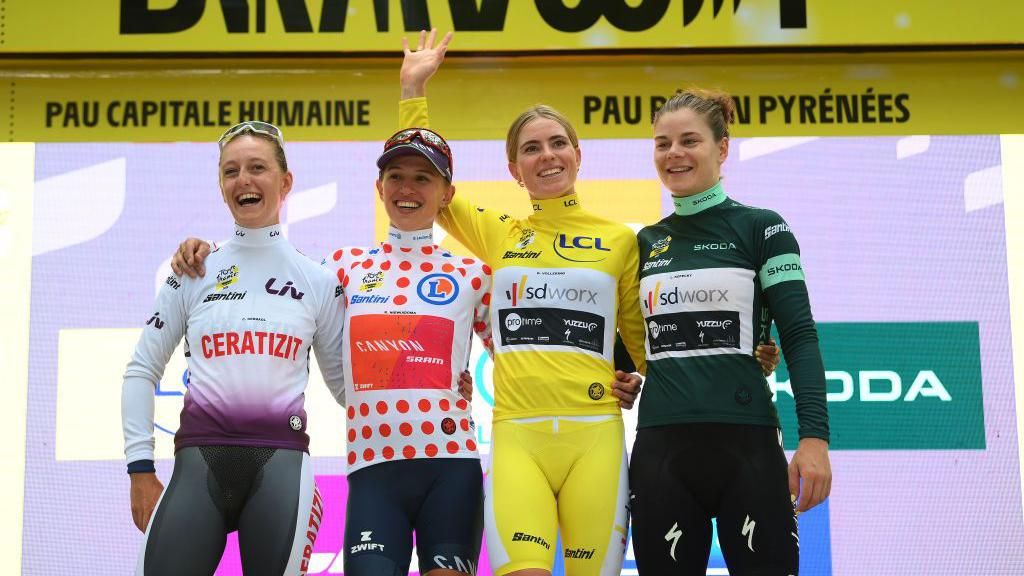
The Tour de France Femmes 2024 features a “brutal” ascent of the historic Alpe d’Huez climb when the revived race returns for its third edition on 12-18 August.
The ascent, famed for its 21 switchback bends and rising to just over 1,800m, has hosted some of the most iconic Tour battles in the men’s race’s history and marks the finish line of this year’s women’s race.
“We have the profile for this [stage] on VeloViewer and I didn’t want to highlight it,” said British champion Pfeiffer Georgi, who will be on the start line again with her DSM-Firmenich PostNL team having competed in both previous editions.
“The first climb [of the stage, over the Col du Glandon] is 20km at 7% and then the second [to Alpe d’Huez] is 13km at 8% and I thought ‘that’s brutal’.”
Taking place slightly later in the year because of the Olympic Games in Paris, the race remains at eight stages although is held over seven days – with stages two and three held back-to-back on the same day.
For the first time it starts abroad, with the grand depart in Rotterdam in the Netherlands, before moving through Belgium and then into France, mixing flat stages with a time trial, rolling classics style stages, and two big days in the Alps to finish.
Georgi takes BBC Sport through all eight stages and what we can expect from the race.
Monday, 12 August – stage one: Rotterdam to La Haye, 124km
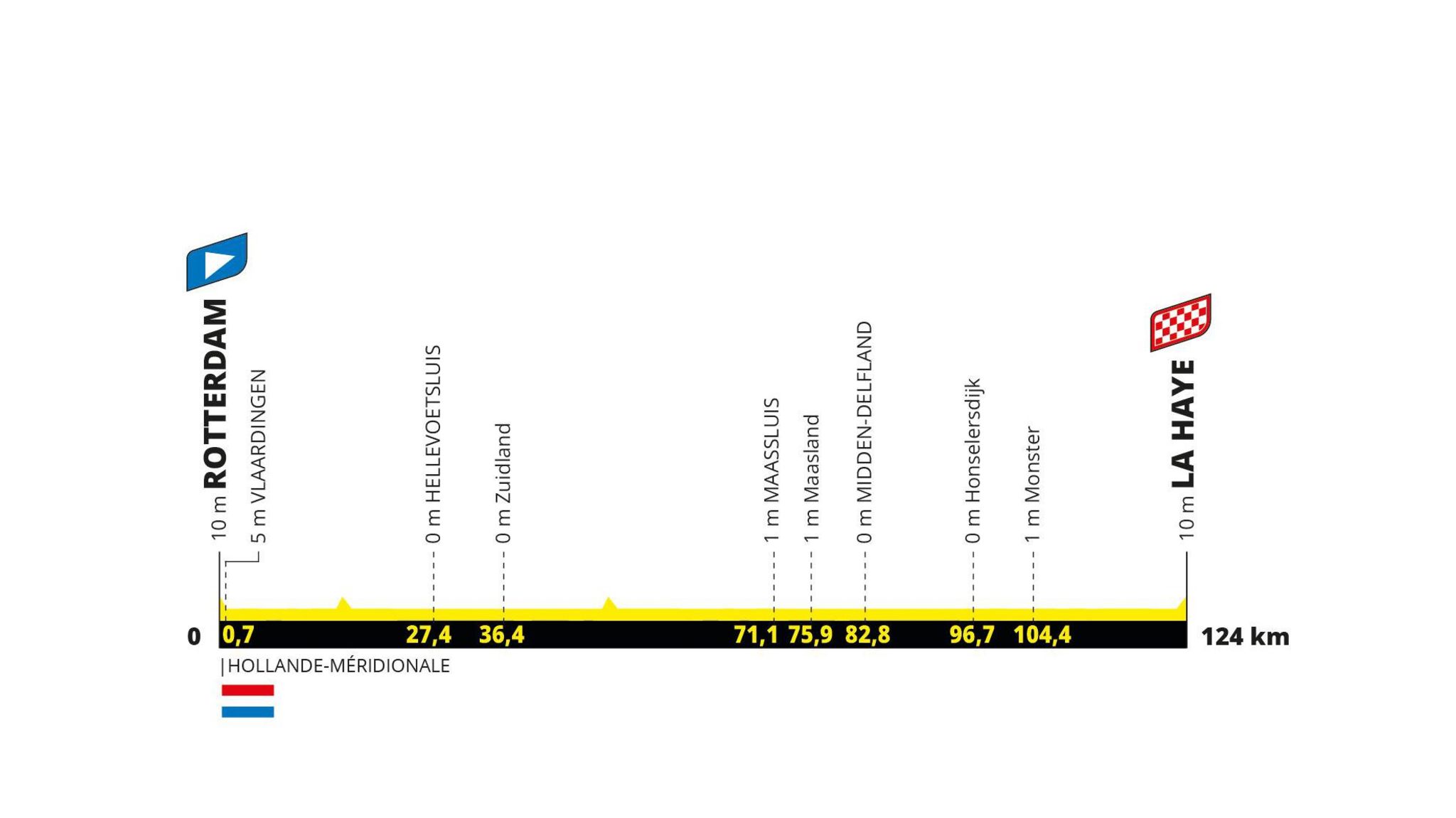
The 2024 race begins outside France for the first time in the city centre of Rotterdam, with a pan-flat stage typical of the Netherlands.
The one kilometre categorised climb in the middle is the only lump on the road as the riders travel northwest towards The Hague, where the sprinters should contest the win.
“Stage one is interesting because all the jerseys are up for grabs. It will be a sprint, but teams that don’t have sprinters will be really all-in and attacking, trying to get the jerseys,” Georgi said.
“I think it will probably be down to SD Worx to chase and control with Lorena [Wiebes]. I think we can take advantage of that.
“From the previous two years the first day is always crazy because everyone is fighting for everything.
“The Tour is such a high profile event that everyone is peaking for it coming in to it super fresh and you can feel the nervousness and people are really fighting and taking risks the first few days.”
Tuesday, 13 August – stage two: Dodrecht to Rotterdam, 67km
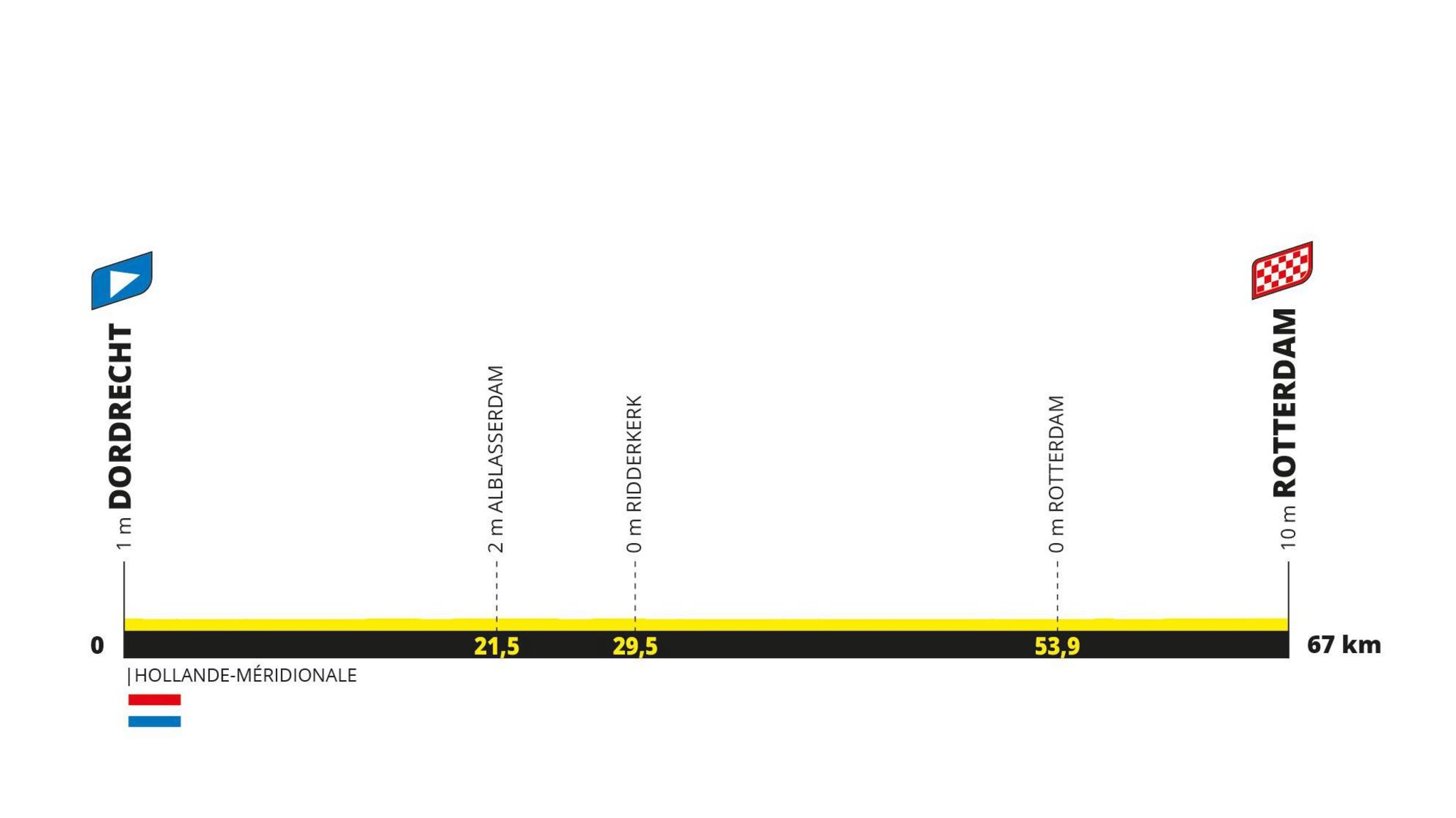
The first of two stages in one day for the peloton with a short 67km road stage back into the centre of Rotterdam that again will suit the sprinters.
This stage is entirely flat, although in the Netherlands there is always the potential that crosswinds could come into play on more exposed roads.
“That will definitely be a sprint day. The finish is a bit interesting in the city with a few bridges and corners so I think that will be pretty technical and fought for,” Georgi said.
“But I think it’s so short that it will definitely be easier to control. Even if people attack there’s not going to be enough time to get such a big gap.
“The fact we’ve got a split stage might deter a few people from attacking because it’s so set on for a sprint they’ll know teams will control and it’s really unlikely [to succeed]. People who aren’t sprinters will probably just save their energy for the time trial.”
Tuesday, 13 August – stage three: Rotterdam to Rotterdam, 6.3km ITT
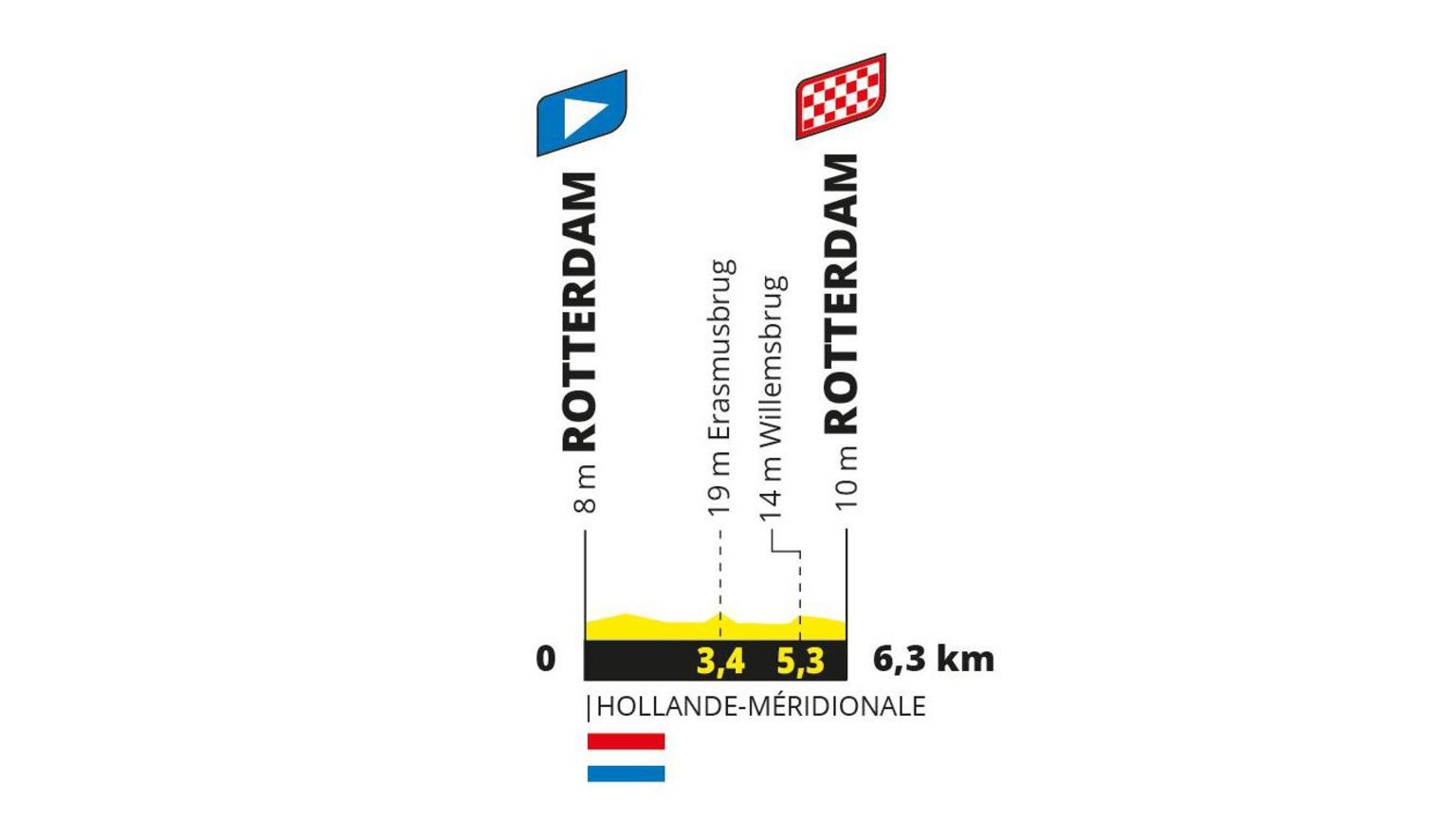
The riders will have a short break before returning to their bikes for an evening time trial.
At 6.3km long it is barely long enough to cause significant time gaps so the tactic from general classification (GC) riders and specialists will likely be to not make any mistakes on a circuit with city-centre street furniture to navigate.
“There’s going to be so many people in the mix for this because you can have the faster girls as well as the time trial specialists and the GC girls will have to go full [effort],” Georgi said.
“It will be a lot of people very close together so I’m interested to see who will come out on top there.
“From our team we all have pacing plans but when it’s so short it’s really just about making sure you get everything out as it’s over so quickly.
“It’s nice to see a TT on the route because over the last few years the number of time trials on the women’s calendar has decreased massively.”
Wednesday, 14 August – stage four: Valkenburg to Liege, 122km
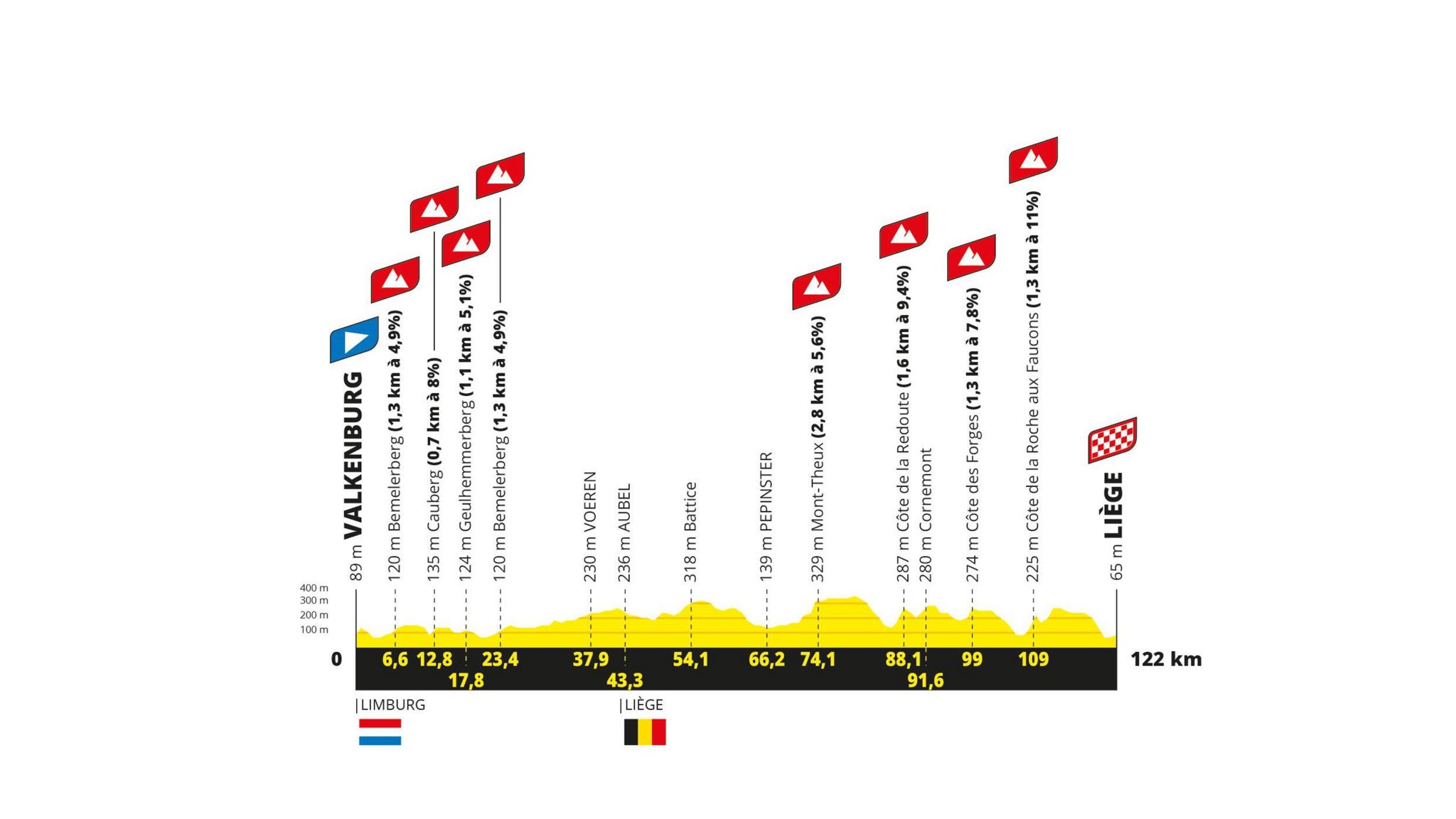
Stage four sees the peloton leave the Netherlands on a hilly route that channels the Ardennes classics of the spring.
The loop around Valkenburg to start takes in the climbs featured in the Amstel Gold Race, including the steep Cauberg and its 8% gradients.
There is barely any let up before the run-in to Liege, Belgium, with the final three climbs made famous by the Monument race Liege-Bastogne-Liege. Cote de la Roche-aux-Faucons is typically where the race-winning move is sprung.
“For me this is the most exciting stage. Depending on how it’s raced it could already see a small GC selection,” Georgi said.
“It’s going to be a rollers warm-up kind of day, it’s going to be a really hard start and people attacking from the gun because there’s so many opportunities on that [opening] lap.
“The climbs at the end of Liege like Redoute and La Roche aux Faucons are pretty hard even though they’re quite short.
“I think maybe the less punchy GC riders might suffer a bit more so there is the potential for some gaps.
“If classics riders are still there then maybe when the GC riders are all looking at each other there’s potential for attacking and them getting away.”
Thursday, 15 August – stage five: Bastogne to Amneville, 152.5km
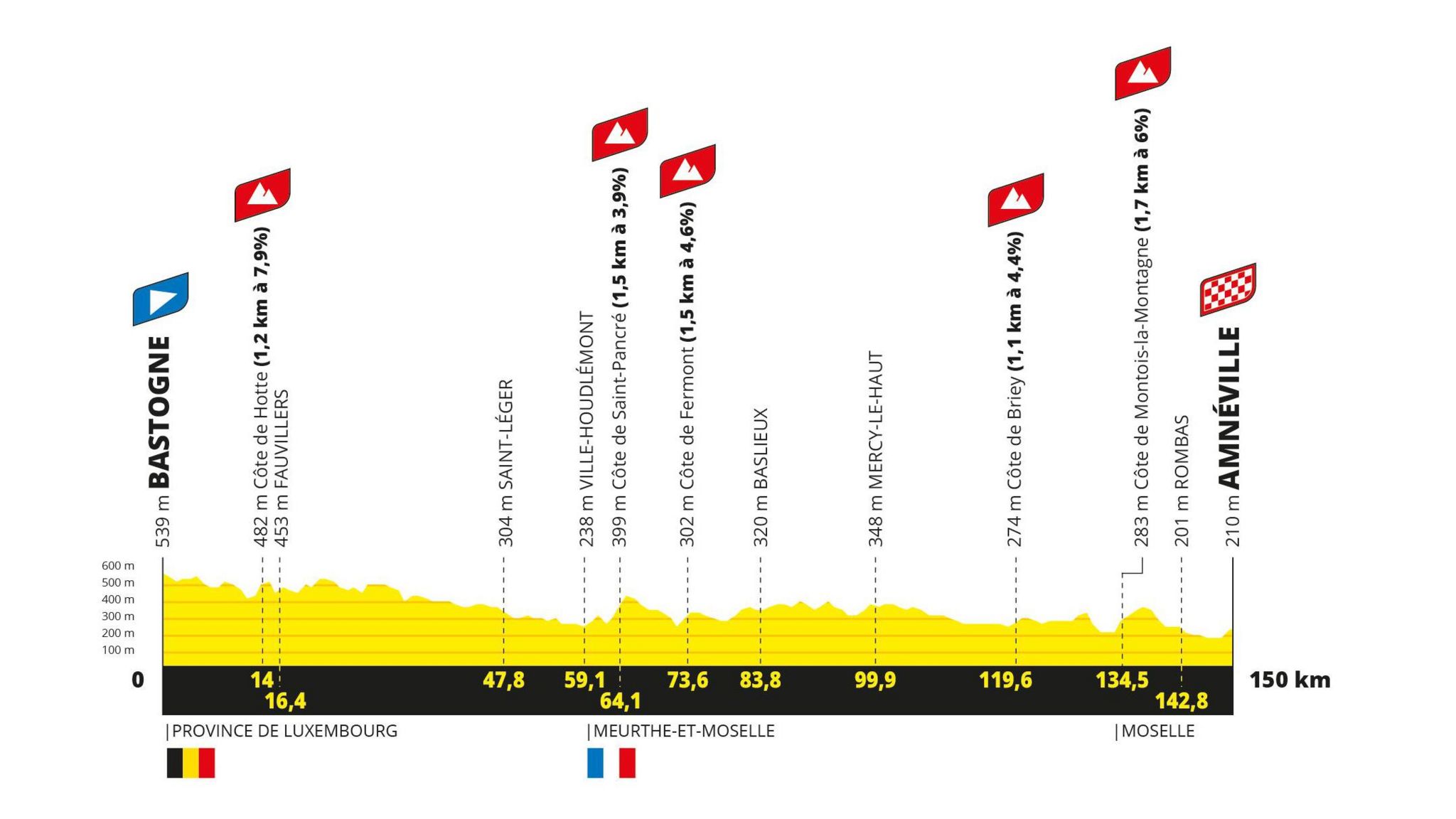
The Tour reaches France with an attritional stage that features five categorised climbs and packs in more than 2,000m of climbing.
None of the climbs are that steep on their own but they are relentless in frequency before a 200m uphill drag to the line.
“This looks like a breakaway day because it’s constantly undulating all day and no real long climbs,” Georgi said.
“I don’t know if I see any team wanting to control for such a long time if a breakaway goes early on. This is the day that I think if a breakaway is going to win it will be stage five.
“It has got a steep climb to the finish line and a few kickers beforehand so it’s probably not going to be a sprint. More likely a solo winner or someone who has got away in a breakaway.
“The race is so back heavy that it will be in the GC riders’ minds that they’ve got a lot coming, but I think for everyone else this could be maybe the last day they could do something so it will get raced even more aggressively.”
Friday, 16 August – stage six: Remiremont to Morteau, 159.5km
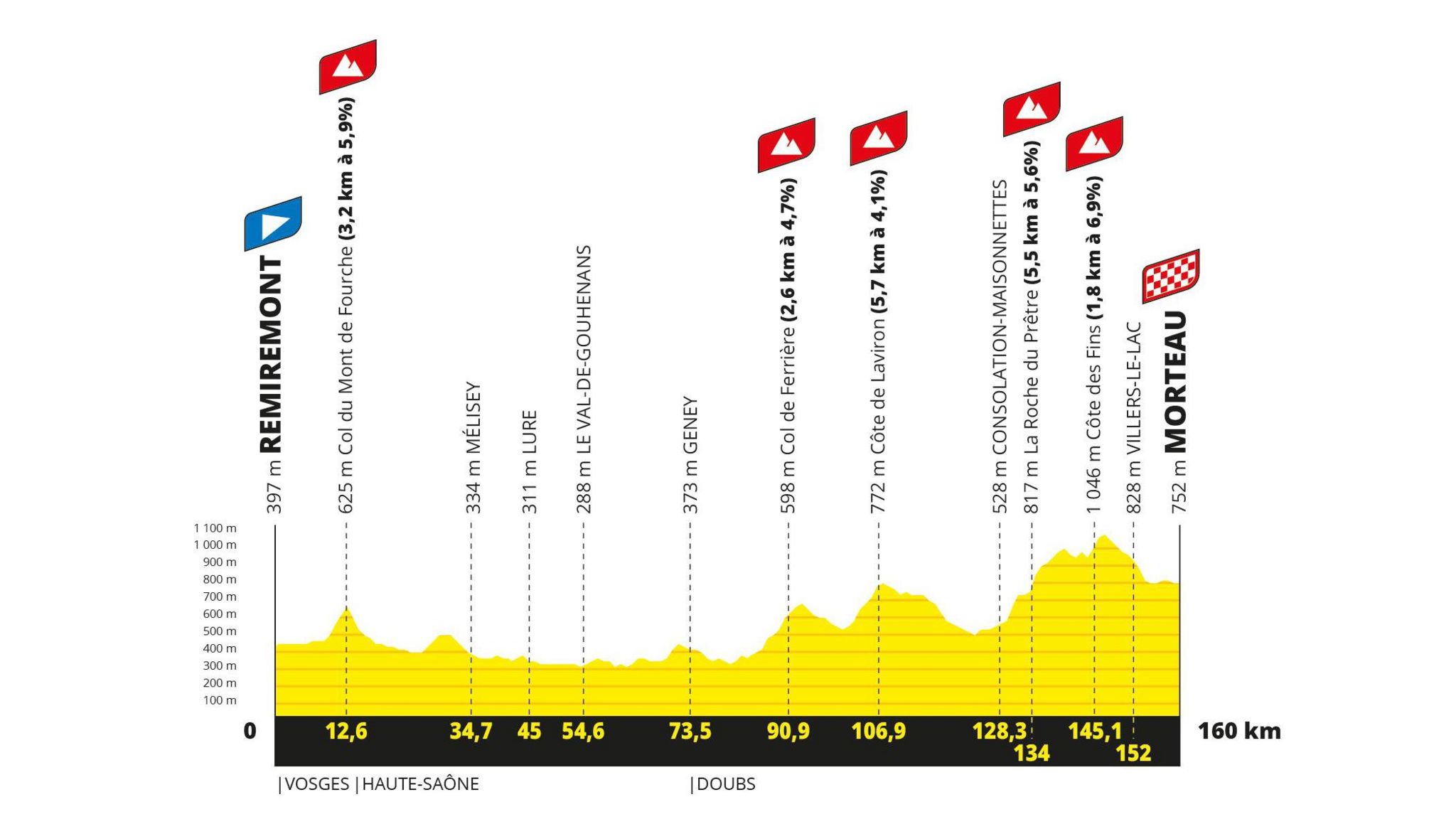
The race hits France’s Jura mountains region and after a relatively flat first half, there are four climbs packed into the second.
The final two are likely to be where the race-winning move is decided, with the Cote de Fins averaging almost 7% gradient before a descent to the line.
“There’s a 3km climb at the beginning so I think if a breakaway goes on there it’s likely to be a strong breakaway that could survive until the end,” Georgi said.
“After that first climb they’ve got quite a bit of time where it’s fairly flat and they can get a big advantage.
“The next three climbs are not super hard, it seems like quite gradual gradients so I don’t think there will be massive splits in the GC.
“It will either be a reduced group or a breakaway to contest this, I think.”
Saturday, 17 August – stage seven: Champagnole to Le Grand-Bornand, 166.5km
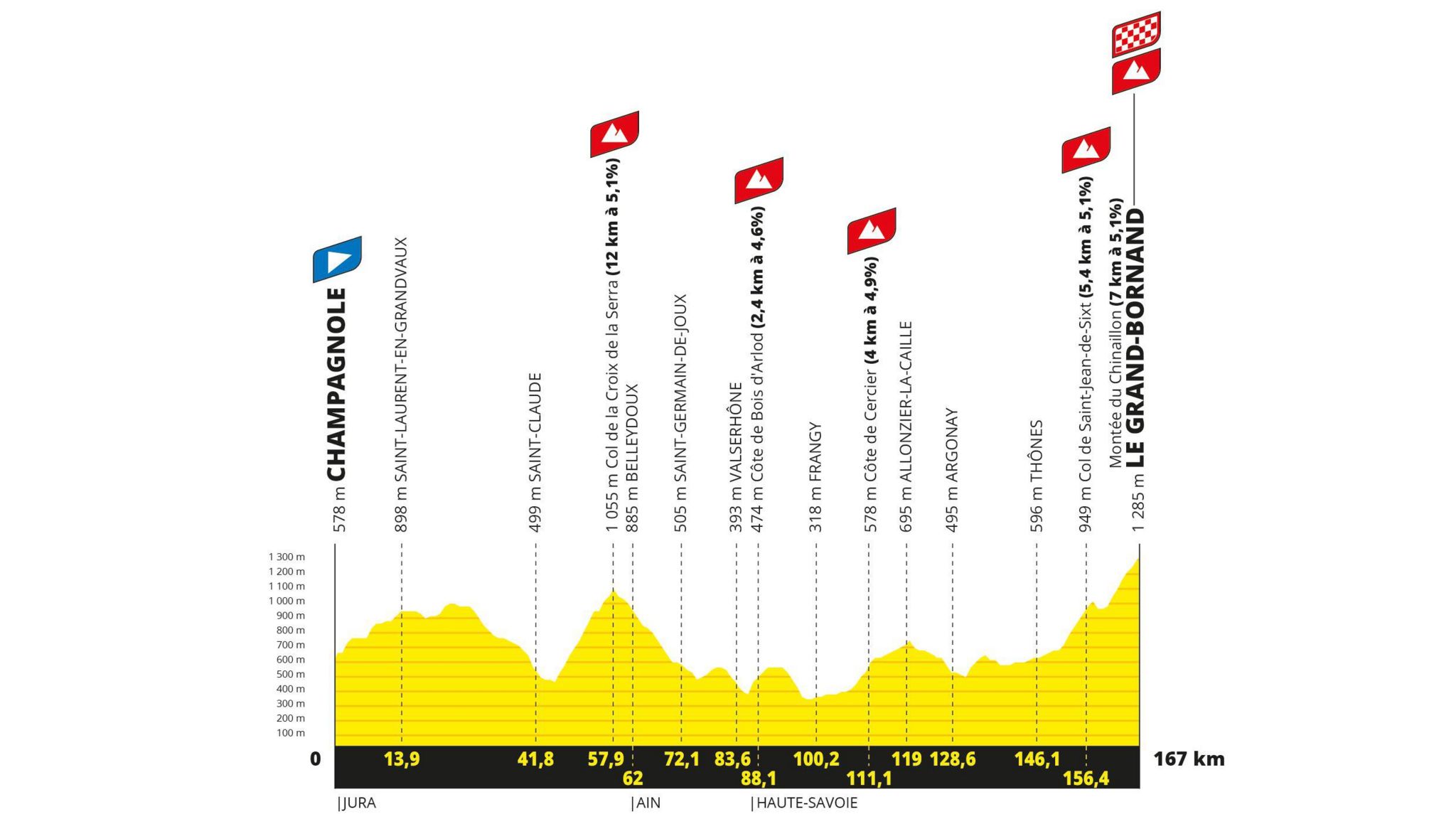
The first of two big mountain stages in the Alps, the race’s precursor La Course finished there in 2018.
This stage finishes with an ascent of a new 7km climb to Chinaillon where the GC battle will come alive.
“This is the longest stage and the last two days most people are going to try and get in a breakaway to survive longer and support their [GC] team-mates further on,” Georgi said.
“We’ve had it the last two years that when it’s a proper mountain stage the fight for the breakaway is [between] everyone – like five out of seven riders from every team – otherwise [classics] riders like myself, when it’s in these really big mountains, you’re no help unless you’re ahead of the race.
“You have to back it up in two mountain days so that is also a different dynamic to see if people really race full and then do it again, because the last day is so, so hard.”
Sunday, 18 August – stage eight: Le Grand-Bornand to Alpe d’Huez
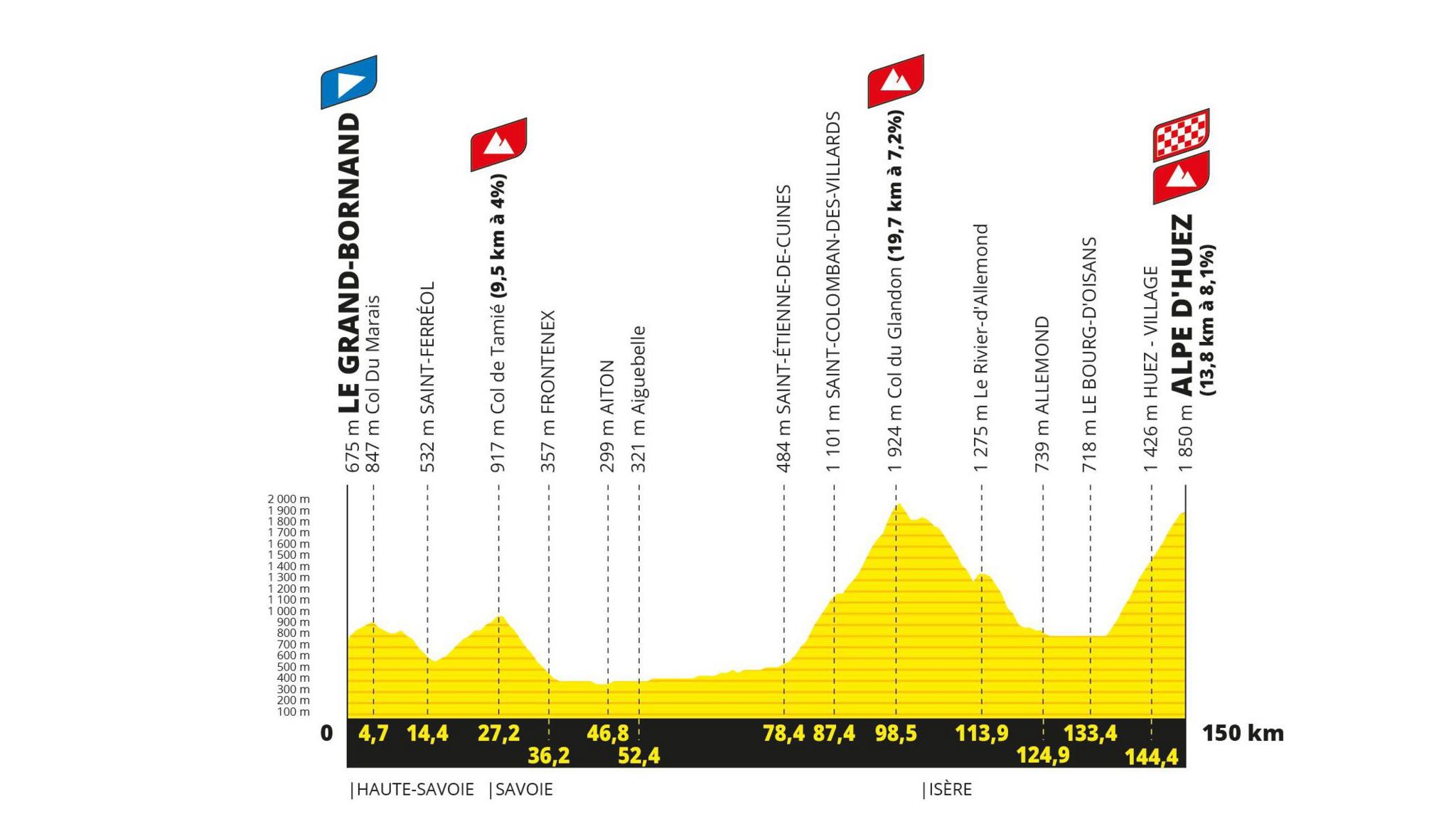
A day purely for the GC riders and climbers to finish this year’s race.
After a relatively tame start, the hors categorie Col du Glandon – the highest point of this year’s Tour at 1,924m – begins the challenge before the iconic Alpe d’Huez.
Ever since Fausto Coppi first won there in 1952 in the men’s race, Alpe d’Huez has firmly been part of the Tour history books, and it is there the yellow jersey will surely be won.
“It’s going to be a complete GC battle, from the first climb it’s just going to be the best and then they’re just going to have to fight it out themselves.
“Alpe d’Huez is a climb I’ve always wanted to do. In the first year when we did La Planche de Belles Filles you could feel the excitement for everyone, the fans were at the side of the road doing Mexican waves and pushing us – so I’m hoping for more of that.
“I think the GC can definitely be decided on the last day. Anyone who is not confident of beating the likes of [defending champion] Demi Vollering or [Giro d’Italia winner] Elisa Longo Borghini, they’re probably going to have to use the first seven days to really attack and try and get time because they’re in great shape.
“A lot of people will be worried that if everyone waits to the last day massive gaps will open here.”
